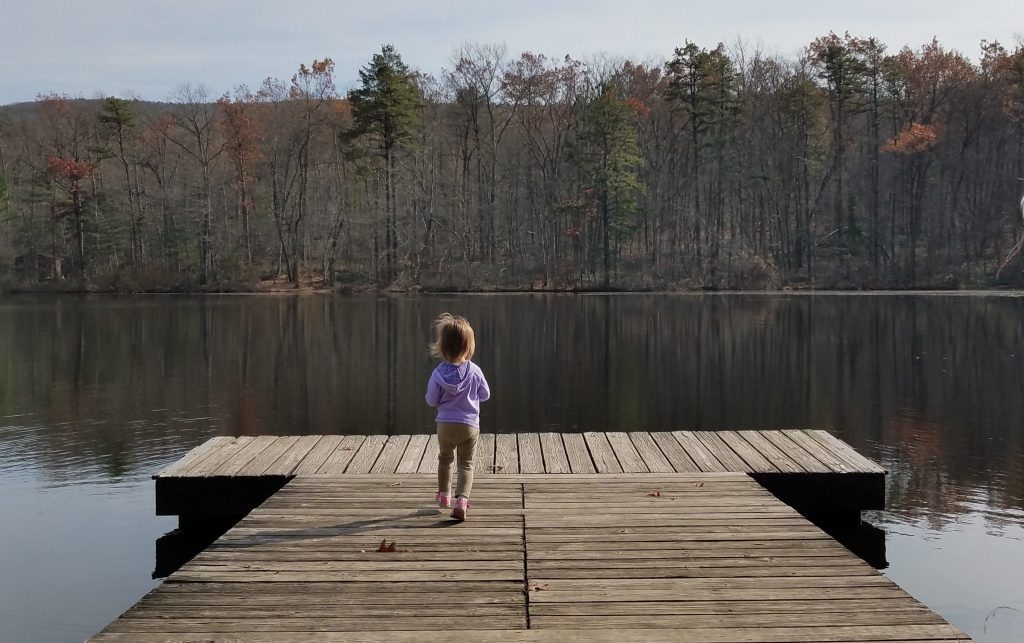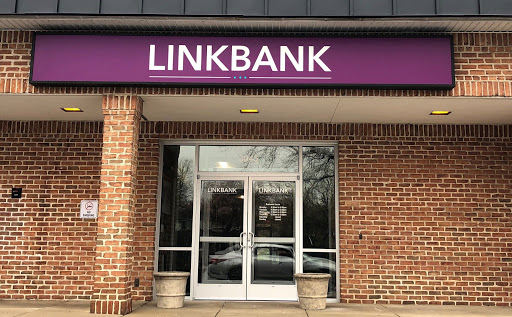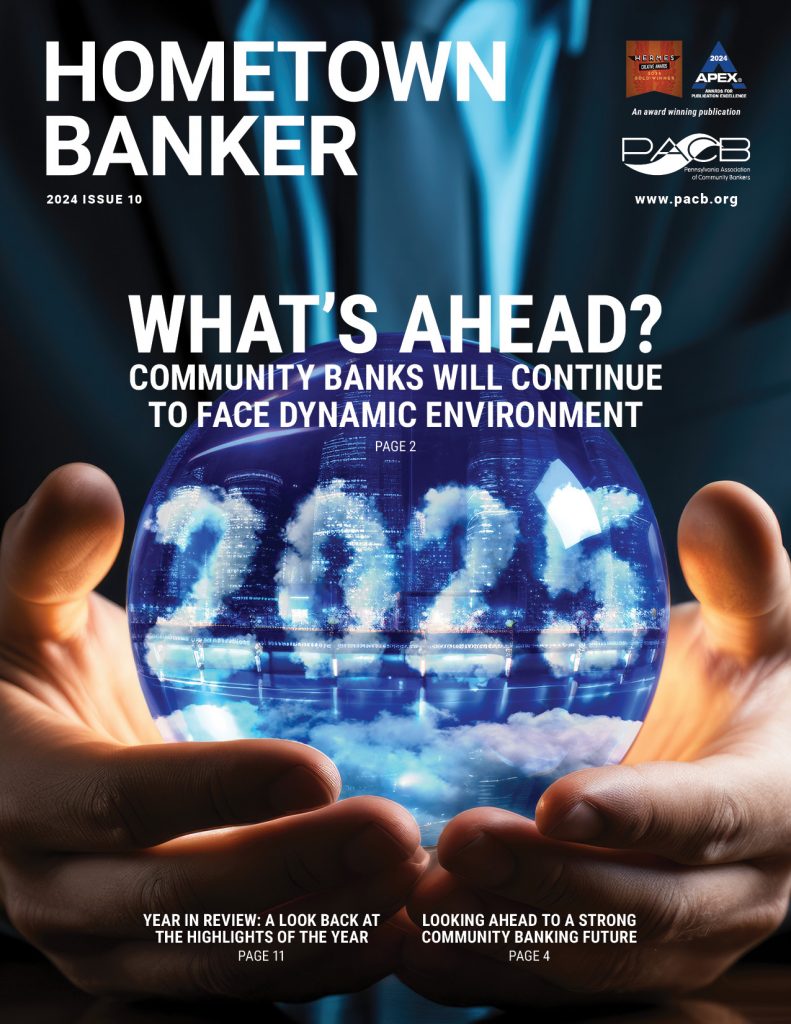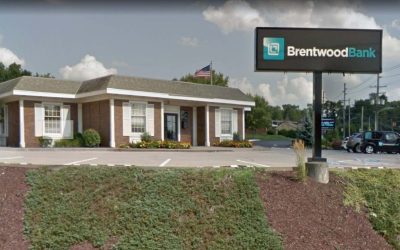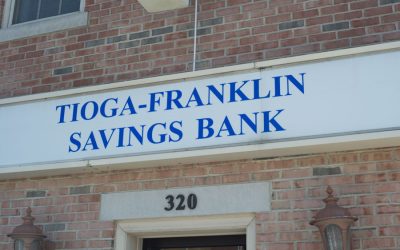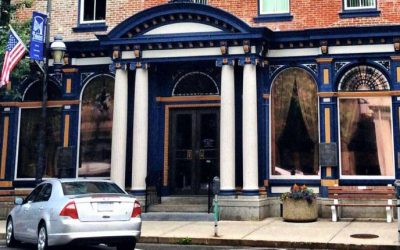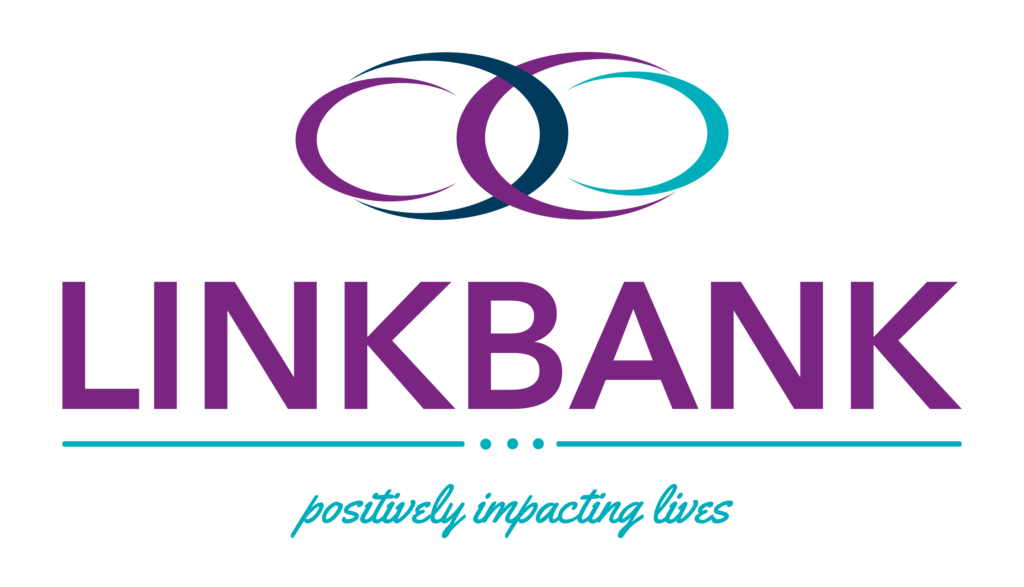
Communities across Pennsylvania are growing and thriving because their community banks care. The service and commitment demonstrated by community bank employees keeps customers faithful, and their sincerity keeps others hopeful. It is because of these employees that communities across the Commonwealth are thriving and becoming better places to live and work.
When it comes to community banking in Pennsylvania, the uniqueness, talent and attributes of the 14,000 individual community bank employees combine to make the entire industry greater than the sum of its parts.
As we travel across Pennsylvania, we meet community bank employees from many different backgrounds. Some are new to the industry, others have worked their entire careers in it. No matter how long these employees have been involved in community banking, they all share a common thread – a love for their community. They truly are the ones responsible for #KeepingTheLightsOn in their hometown.
As part of an ongoing series, each month we will be featuring brief interviews with these community bank employees, these “Hometown Champions”. Through these interviews, we hope to gain some insight into what makes the community banking industry great in Pennsylvania.
This month, we chat with the hometown champions from LINKBANK. Rooted in South Central Pennsylvania, they’re invested in the communities they serve. Like their customers, they’re raising families and taking care of loved ones. They understand the complexities of small business, including leading organizations in growth and vision. They embrace innovation and the entrepreneurial mindset, and they’re drawn to new opportunities and growth. Blending a strong heritage of banking expertise with strong values, LINKBANK is committed to providing compelling products, services and financial consulting. They guarantee authenticity and enthusiasm.
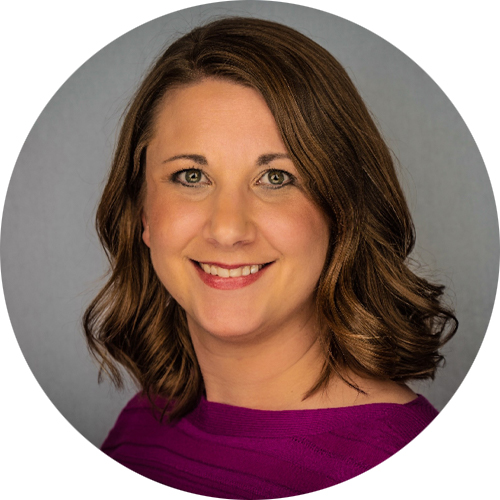
Jenna Hohlefelder
Client Solutions Specialist
How did you get into community banking?
Jenna: Upon high school graduation, I was admitted to Lancaster General College of Nursing and Health Sciences, studying their Surgical Technology Program. I realized during the course of my studies that I preferred to work with people who were “awake” and that surgical technology was not the right fit for me. After searching for a career where I made a difference in the lives of those I came into contact with, it was suggested that I join the banking industry. I quickly realized that I enjoyed interacting and advising my clients with their financial and banking decisions. With a lot of hard work in understanding the banking industry and dedication to my position, I realized I had chosen the right career.
What is the most rewarding aspect of working in community banking?
Jenna: For me, it’s the impact; it is knowing that I have the opportunity every day to positively impact the lives of my clients, colleagues and community. To look back over the last 11 years of building relationships, it is truly an amazing feeling that, in some way, shape or form, I played an integral part in many people’s financial success.
People always want a definition of “community bank,” what’s yours?
Jenna: My definition of community banking is building relationships and forming partnerships that last. It is important to partner with our clients to guide, support and help them achieve their financial goals. Our clients need to know that their community bank will be there for them when they need it most. It’s a partnership with my colleagues. We are collaborating together to reach a common goal — the financial success of our clients. It’s a partnership with our community. By working together, we can make our future and our children’s future better than it is now.
Tell us something about yourself that most people don’t know.
Jenna: In my search for the “right” career, I sold cars for about four months in 2008. It was a very difficult time economically for a brand-new car salesperson.
What is the 5th picture in your camera roll on your phone, and can you please share the story behind it?
Jenna: The fifth picture in my camera roll is a picture of my Nana and my dog, Trot. When deciding which college to attend, one of the reasons I chose the Lancaster General College of Nursing and Health Sciences was to be closer to my grandparents. From the time I moved to Lancaster in 2004 until they passed away, we had a weekly dinner date at Lombardo’s. These dinners will always hold a special place in my heart, as it was the one-on-one time I needed as a young adult, trying to find my way in the world. My grandparents and parents had such an impact on me and have helped shaped me into the person I am now.
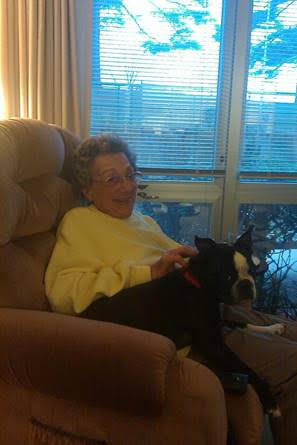
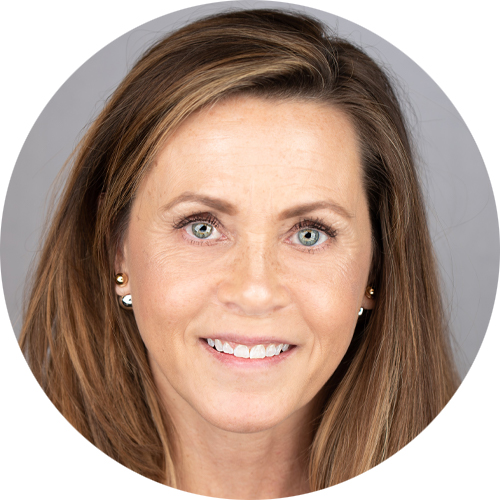
Cheryl L. Howard
Commercial Executive
How did you get into community banking?
Cheryl: It’s where I began my career, and it just resonates for my work life to directly connect to the community where I have lived my whole life.
What is the most rewarding aspect of working in community banking?
Cheryl: For me, it is being able to drive down the road and know the history of the businesses and know that, in some small way, the teams I have worked with over the years have contributed to the growth and success of the community.
People always want a definition of “community bank,” what’s yours?
Cheryl: My definition would be banking that focuses on and cultivates financial services that not only meet the needs of the individuals and businesses who use the services but also includes local employees and shareholders with like-minded goals for the benefit of the community.
Tell us something about yourself that most people don’t know.
Cheryl: I’m a bit of an introvert when I’m not at work. I think people assume that since I have spent my career in a sales position that I am an extrovert, but it’s really the opposite. When I’m home, I am quite happy relaxing with just my husband and my dogs.
What is the 5th picture in your camera roll on your phone, and can you please share the story behind it?
Cheryl: Meet Shane Sinclair, a relationship manager on my team. He is taking part in some fun we had at our last all-employee meeting; hopefully he is going to forgive me for this!
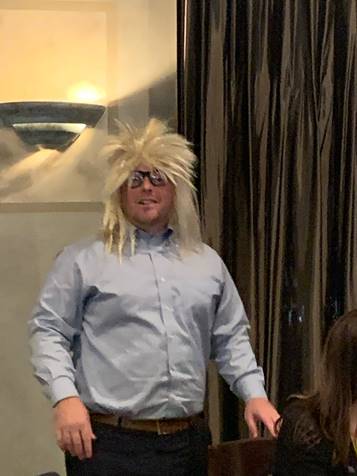
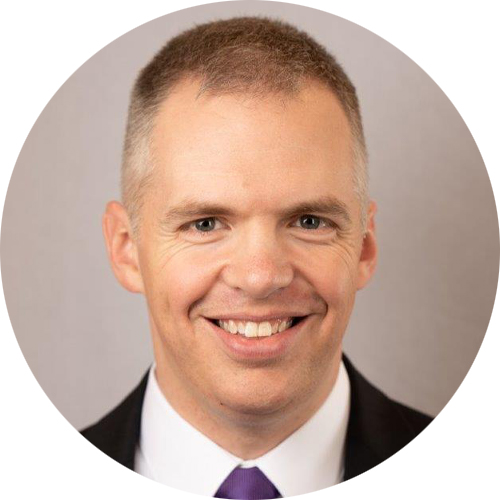
Mark Yerger
Chief Technology Officer
How did you get into community banking?
Mark: After 20 years in IT across pharmaceutical, retail, consulting and higher education, community banking found me. I’m grateful that the journey has allowed me to surround myself with great people and organizations that were aligned with my values; however, for me, trade-offs included years of hourplus commutes and a reduced ability to blend work life with life in general. Eventually, the gift of a growing family and an intrinsic push to “find a better way” called the question: Do we make “the dreaded move” to a new community or do we double down on our local community? As part of this process, I got to know Brent Smith and Andrew Samuel, who were in the early stages of thinking about how to use technology to enable innovative banking approaches. Eventually, I took a leap of faith and left the chief technology officer role after nine years at Bucknell University and joined a local technology consulting company that LINKBANK had engaged. After a few months of growing my industry knowledge through work with several community banks, I accepted an offer to join LINKBANK directly as chief technology officer and help plan and realize its transformation to a digitally enabled community bank. Not only did the organization have strong values and cultural alignment, but there was a clear commitment to using technology to impact clients in innovative ways. Also, the energy and passion of the team to make a difference locally in each community we serve was compelling — we “Positively Impact Lives.”
What is the most rewarding aspect of working in community banking?
Mark: For me, the most rewarding part of community banking is seeing the stories of our clients in real time, particularly those that come to the bank in the early stages of their entrepreneurial endeavors. We can see firsthand how they achieve that first milestone and then grow, hire, build, and eventually begin to impact our broader community diversely. Knowing you’re part of the team that helps make that possible is a powerful motivator.
People always want a definition of “community bank,” what’s yours?
Mark: A community bank is a place that fuels economic development by developing people and processes that can enable the efficient deployment of local deposits to local opportunities by issuing loans with a level of personal knowledge and care that is not possible under other banking models.
Tell us something about yourself that most people don’t know.
Mark: I have been interested in “community” and what it takes to form and support a vibrant community for a long time. As an undergraduate business economics major who loved hiking, I did a study of the Appalachian Trail through the hiking community by leaving journals along the trail and asking hikers to comment on community. Thankfully, one individual from Connecticut sent the completed journal back to me. Not surprisingly, relationships and shared experiences were at the heart of their “community” experience, something that can still be applied broadly despite the loosening of geographic boundaries in the digital and digitally enabled communities that are our present reality. We all need local relationships, but when they are digitally enabled, it’s the best of both worlds.
What is the 5th picture in your camera roll on your phone, and can you please share the story behind it?
Mark: It’s not surprising that I’d have a picture of my kids. This picture was taken a year ago, and it is No. 5 because I was recently saving old photos to my camera roll for printing. The event was my oldest son’s (Lane) Thanksgiving “family day” at preschool. We had just finished seeing them sing with their paper pilgrim hats and Lane was excited to have his brother as a guest and to show him how to “sit” for storytime. I love it because it was one of those moments that happen perhaps more often than we think but I “got” to see it that day because I could be there in person. Fleeting, but so important!
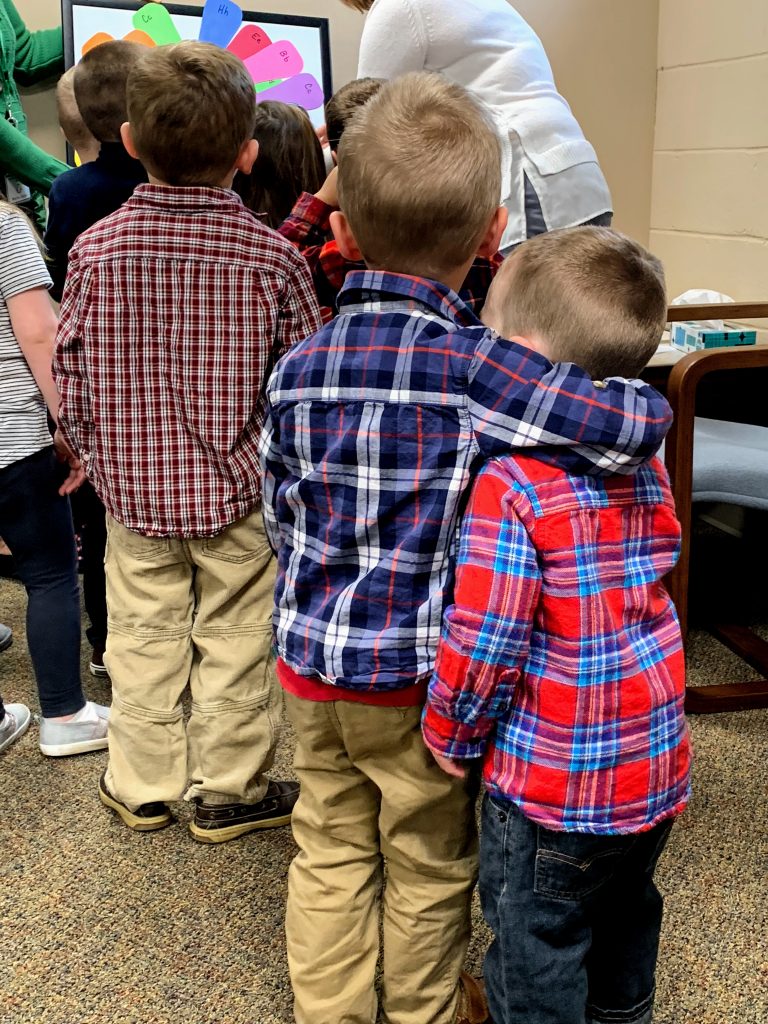
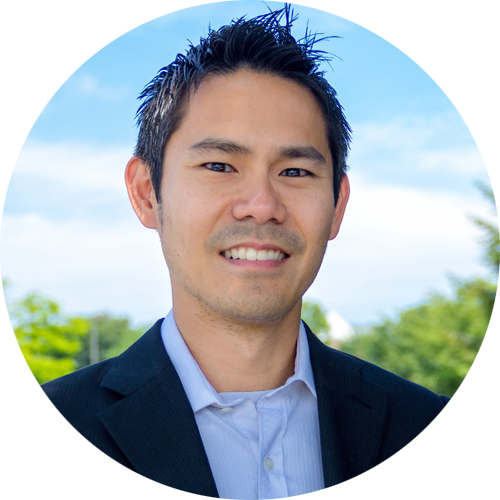
Ray Chung
Chief Culture Officer
How did you get into community banking?
Ray: Growing up in Malaysia, as an 8-year-old boy, I recall going to the local bank with my mom to deposit Chinese New Year red packets (hong bao) money, proudly handling my bank passbook. Fast forward twenty-some years later, I find myself visiting community bank clients in Burundi, Rwanda and the Republic of Congo as they update passbooks during loan meetings. Before LINKBANK, I spent eight years serving with HOPE International, a Christian International nonprofit that provides biblically based training, savings services and loans. I had the amazing opportunity to see firsthand the positive and lasting impact of the “hand-up” versus the handout approach in international development. It was an honor to serve alongside talented local leaders to restore dignity and break the cycle of poverty. LINKBANK, in many ways like HOPE, is standing at the intersection of finances, people and community. It’s walking alongside leaders in our communities and believing in a better tomorrow. It’s about impacting lives positively.
What is the most rewarding aspect of working in community banking?
Ray: It is a great privilege to be able to serve those in our community through banking. In community banking, we get to roll-up our sleeves and partner with businesses and individuals to multiply their talents amid value creation in our communities. It’s rewarding to help business and community leaders move closer to their mission, better steward their finances, impact the community through providing their products and services and job creation. “Maximizer” being one of my strengths, I love seeing talents lived up to their potential and positive impact multiplied. Being rooted here in South Central Pennsylvania, I love that we get to invest in the communities we serve. We get to work in this local community, raise our family, and take care of loved ones here.
People always want a definition of “community bank,” what’s yours?
Ray: Recently, my friend, Bob, shared that though there may be plenty of definitions for the term “community,” a community is something that you know it when you see it. Similarly, a community bank can be described with terms like “local” or “relationships,” but you know it when you see it. A community bank is an avenue for financial service at the intersection of people and their community.
Tell us something about yourself that most people don’t know.
Ray: Recently, I signed up for an Enneagram Typing session and learned that I’m a type 2 (Helper). I learned that tips for growth for type 2 include being intentional in creating space for solitude and setting clear boundaries. Or, there was the time when I was nine when I got lost at sea during a jetski adventure.
What is the 5th picture in your camera roll on your phone, and can you please share the story behind it?
Ray: Eden loves gathering up little pebbles, holding them carefully in her hands, and throwing them one-by-one, into the lake — then doing it all over again, and again, and again. I enjoy dedicating time for daddy-daughter dates to focus all my attention on loving her, being with her, and deepening our relationships through throwing pebbles into the lake. The photo was taken at Memory Lake in Dillsburg, Pennsylvania.
